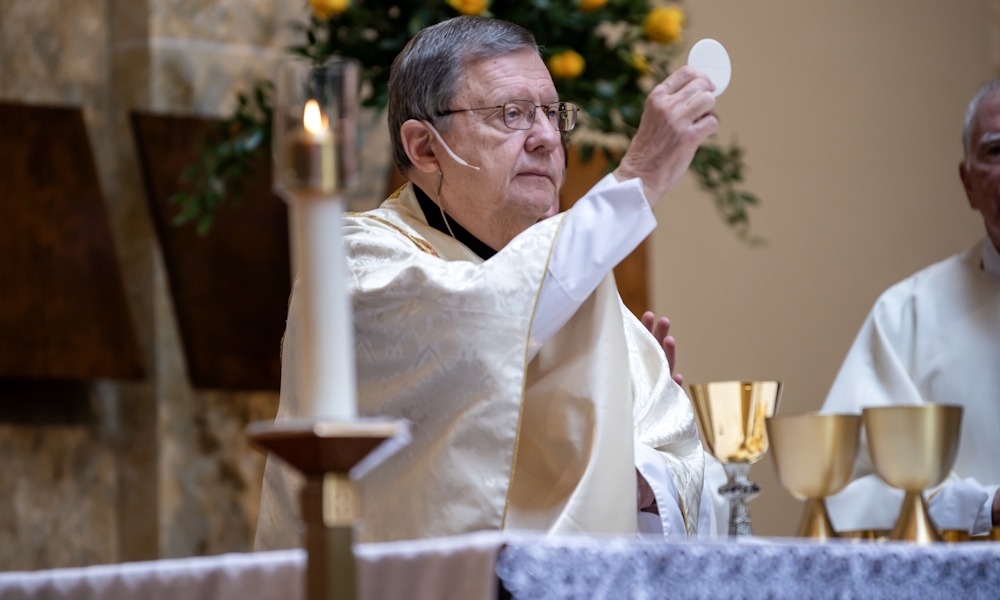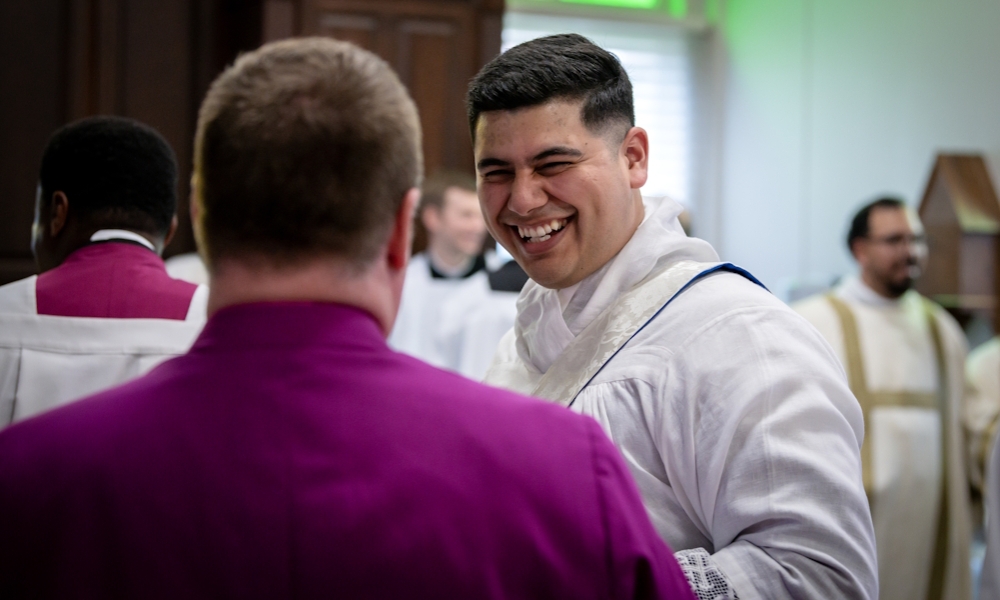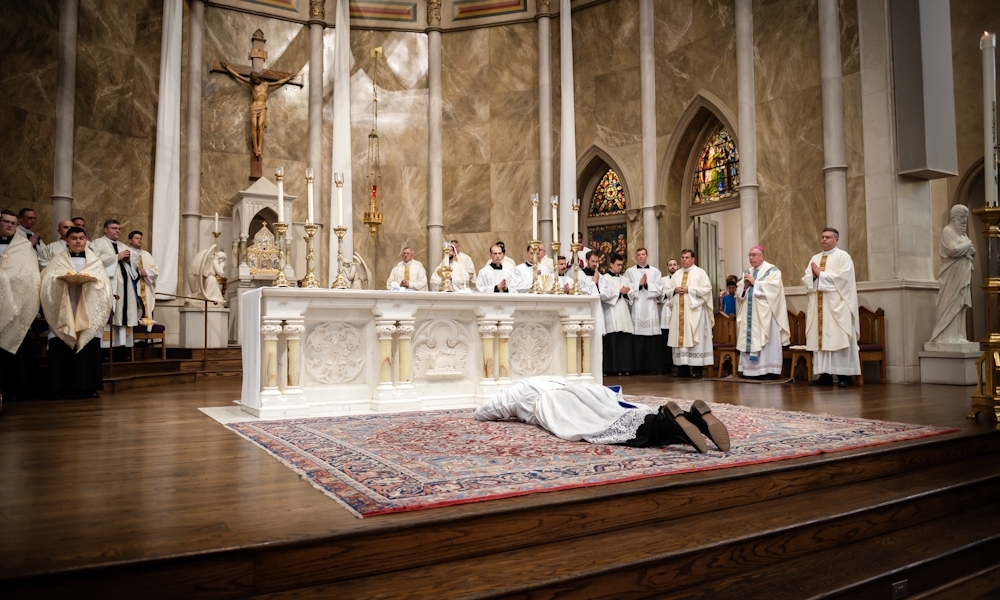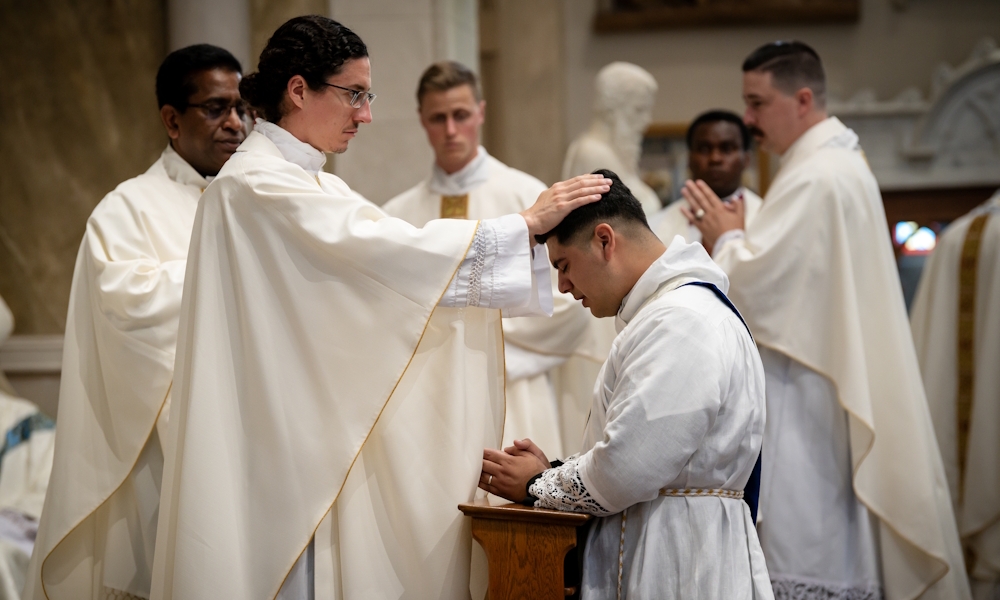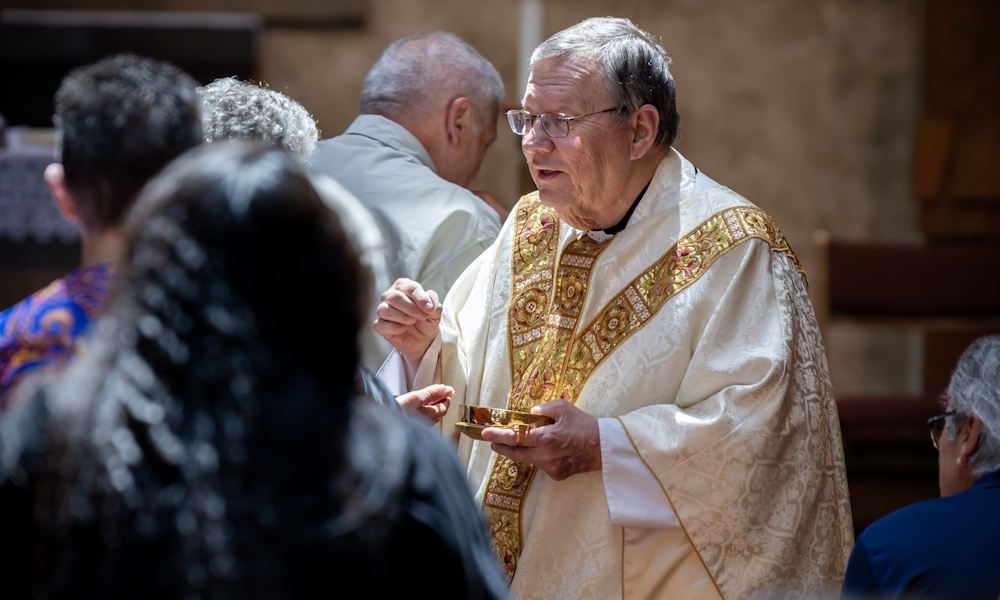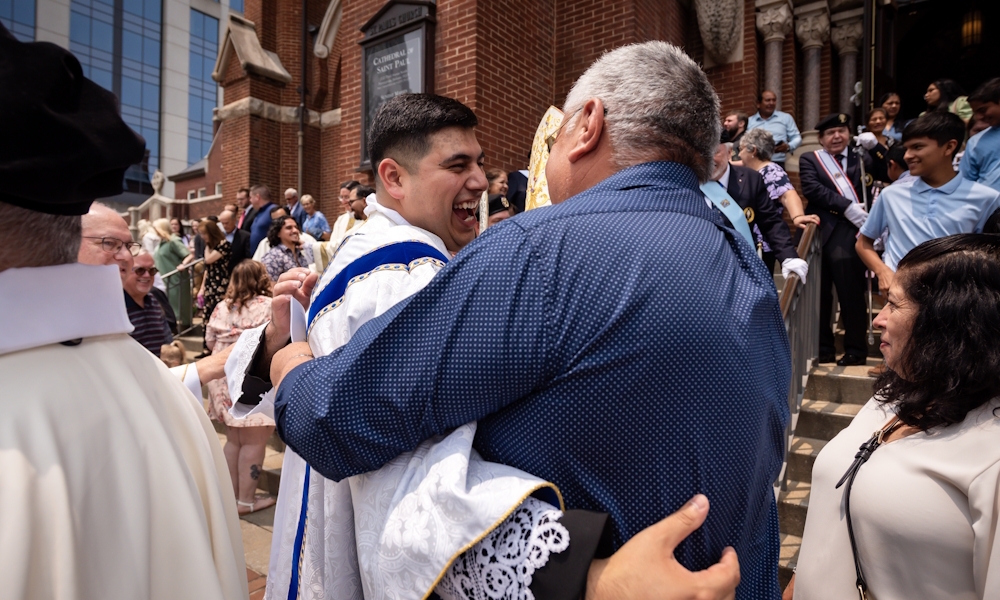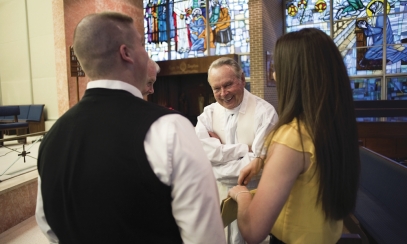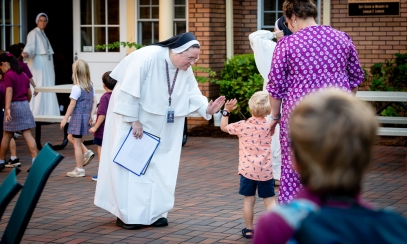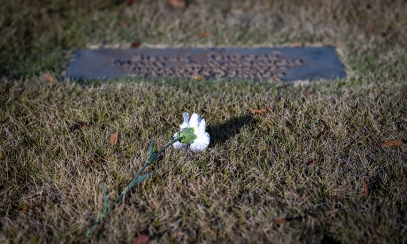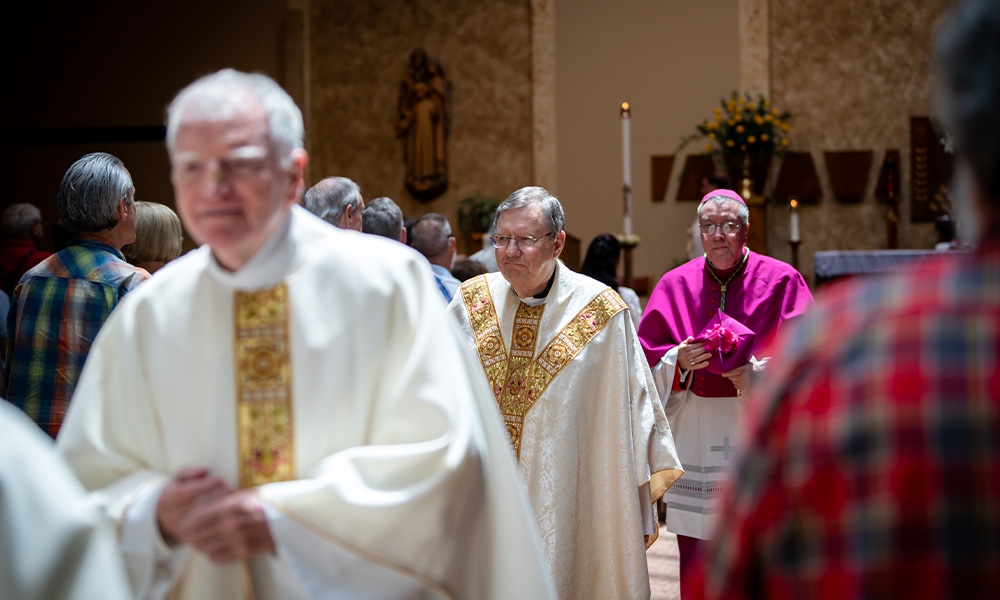
For the gift of priesthood, thank you, Lord!
How blessed I was on May 31 to join Bishop Raica in the ordination of our newest priest, Father Max Gallegos, who also happens to be the first Hispanic to be ordained for our diocese. Earlier the same month, Msgr. Paul Rohling celebrated the 50th anniversary of his ordination to the priesthood.
How blessed I was on May 31 to join Bishop Raica in the ordination of our newest priest, Father Max Gallegos, who also happens to be the first Hispanic to be ordained for our diocese. Earlier the same month, Msgr. Paul Rohling celebrated the 50th anniversary of his ordination to the priesthood.
Both men represent a spectrum of age and time of service: one who is just beginning his priestly service, another who has completed a half century of service. What a great gift God has given to us in incarnating His priesthood and His great love in the lives of these two men through their priesthood! How grateful we are to the Lord for them and all the priests, living and deceased, who have served in our diocese through the years!
My perspective on priesthood is shaped by my own 55 years as a priest and 26 as a bishop. I, like those two priests, am grateful for the special gift I have been privileged to enjoy as a priest. A priest never stops being a priest, even during his days of “retirement.” His priesthood is forever!
The priest acts in persona Christi (on behalf of and in the person of Christ) in all he is called to do. In his works of charity, in his spiritual counseling and words of encouragement, in his teaching of the faith, in his pick-up sports games with children of the parish on the basketball court or football field, in his sometimes tedious efforts to raise funds and pay bills, and in all his waking and sleeping hours, he acts in the person of Christ. He is, through his priesthood, an alter Christus (another Christ). Most importantly, however, it is when he celebrates the sacraments of the Church that he is most fully Christ to His people as a priest. Why so?
Bishop Robert Barron, a bishop at the forefront of evangelization and catechesis in our Church, in one of his many insightful teachings described a situation he had while on the faculty of the Chicago Archdiocesan Seminary in Mundelein, Illinois. A colleague of his, Carmelite Father Gorman Sullivan, joined Bishop Barron and a couple of other faculty members in the seminary faculty kitchen and read a student evaluation of his sacramental theology class. “It is great you are enthusiastic about this class,” the student wrote, “but you seem to think sacraments are the most important things in the world.”
Bishop Barron recounts that there was dead silence for a few seconds. Then the other priests immediately chimed in together, “But they are!”
The bishop goes on to refer to the sacraments of the Church as the “privileged ways in which Jesus continues to be present to His people and to share His life with them … What could be more important than that?” Bishop Barron goes on to quote Pope Leo the Great: “What was visible in our Savior has now passed into His mysteries (sacraments).”
For Catholic people of deep faith, there is no greater presence of Christ active in our midst than the sacraments, especially in the Most Holy Eucharist, and I don’t state that reality because I, too, was once teaching sacramental theology in a seminary classroom. It is so true that Christ brings His life and presence into our lives principally through the sacraments. Though Christ is not limited in His activity to the sacraments, by His own desire, He wanted sacraments to be His principal way of reaching to all people of all times and all places.
Since a priest plays a pivotal role in celebrating the sacraments, a priest plays a pivotal role in bringing Christ to His people. He is indispensable!
In my final years on this earth, I am reminding Catholics constantly of how important it is to appreciate the gift of the sacraments, and consequently, the gift of the priesthood.
Sixty years ago, every Catholic student in a Catholic elementary school knew the definition of a sacrament from the Baltimore Catechism: “A sacrament is an outward sign instituted by God to give grace.” (No. 2 p. 119)
The new and official definition that should be taught in all Catholic schools today was formulated by Cardinal William Levada when he worked for the Congregation for the Doctrine of the Faith. He inserted that definition in the glossary of the Catechism of the Catholic Church, which he oversaw. It reads as follows: “Sacrament: An efficacious sign of grace, instituted by Christ and entrusted to the Church, by which divine life is dispensed to us through the work of the Holy Spirit.” (p. 898) This newer and better definition includes a reference to the importance of the Church and the Holy Spirit.
Knowing a definition is not a final solution to comprehending the meaning of sacrament, but it is a starting point and a major help.
I recommend Father Chris Alar’s book Understanding the Sacraments as a good introduction to a study of the sacraments.
We thank the Lord for the great gift of the sacraments and for those priests who have introduced us to Christ through the sacraments of the Church, all through our lives!
How grateful we are to priests like Father Max Gallegos and Msgr. Paul Rohling for saying “yes” to God’s invitation to bring Christ to us daily through the sacraments of the Church!

